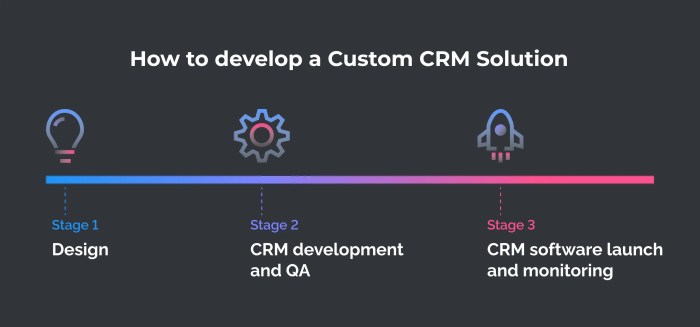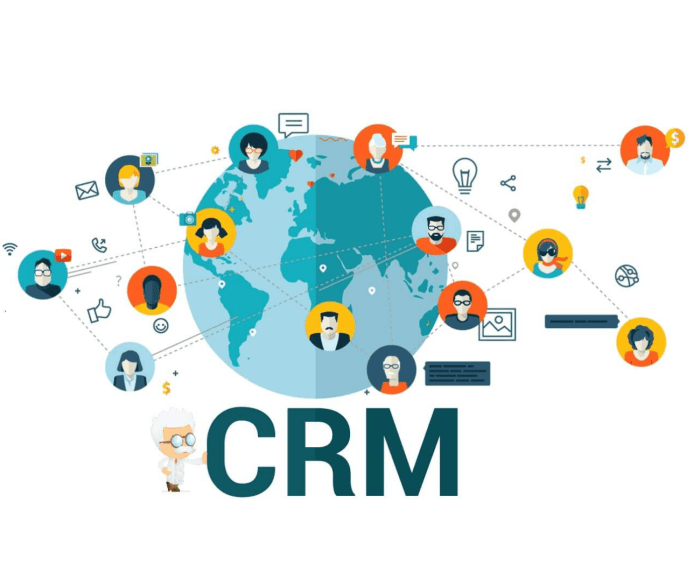CRM customization for specific industries sets the stage for this enthralling narrative, offering readers a glimpse into a story that is rich in detail with idntimes author style and brimming with originality from the outset.
Exploring the key features prioritized by different industries, how CRM customization tackles sector-specific challenges, and successful examples across various fields will shed light on the dynamic nature of tailored CRM solutions.
CRM Customization for Specific Industries
When it comes to CRM customization, different industries have specific needs and priorities that must be addressed. Tailoring CRM systems to suit the unique requirements of each industry can lead to more efficient operations and improved customer relationships. Let’s explore how CRM customization can benefit various industries.
Retail Industry
In the retail sector, CRM customization often focuses on customer segmentation, personalized marketing campaigns, and inventory management integration. By customizing CRM systems to track customer preferences and purchase history, retailers can target promotions more effectively and enhance customer loyalty.
Healthcare Industry
CRM customization in healthcare typically involves patient data management, appointment scheduling, and communication tools for healthcare providers. Customized CRM systems help healthcare organizations improve patient care coordination, streamline administrative processes, and ensure compliance with regulatory requirements.
In this topic, you find that Best practices for CRM implementation is very useful.
Real Estate Industry
Real estate companies benefit from CRM customization that includes lead management, property listings integration, and automated follow-up processes. Customized CRM systems help real estate agents track leads, manage properties, and nurture client relationships, leading to increased sales and client satisfaction.
Manufacturing Industry
In the manufacturing sector, CRM customization often focuses on sales pipeline management, order processing, and customer service integration. By customizing CRM systems to track sales opportunities and streamline order fulfillment processes, manufacturers can improve efficiency, reduce lead times, and enhance customer satisfaction.
Factors Influencing CRM Customization: CRM Customization For Specific Industries

Data analytics plays a crucial role in tailoring CRM solutions for specific industries. By analyzing customer data, businesses can gain valuable insights into customer behavior, preferences, and trends, allowing them to customize their CRM systems to better meet the needs of their target market.
Comparison of Customization Needs Across Industries
- Healthcare Industry: In the healthcare sector, CRM customization often focuses on patient relationship management, appointment scheduling, and personalized care plans. Data security and compliance with healthcare regulations are key considerations.
- Retail Industry: Retail businesses may require CRM customization for managing customer loyalty programs, inventory management, and personalized marketing campaigns. Integration with e-commerce platforms and POS systems is essential.
- Finance Industry: CRM customization in the finance sector typically involves managing client portfolios, tracking financial transactions, and ensuring compliance with strict regulatory requirements such as GDPR and financial data protection laws.
Impact of Regulatory Requirements on CRM Customization
Regulatory requirements have a significant impact on CRM customization in different sectors. Industries like healthcare and finance must adhere to strict data protection laws and privacy regulations, influencing how CRM systems are customized to ensure compliance. For example, CRM solutions in healthcare need to meet HIPAA regulations to safeguard patient data, while financial institutions must comply with KYC and AML regulations to prevent fraud and money laundering.
Best Practices for Industry-Specific CRM Customization

When it comes to customizing CRM systems for specific industries, there are several best practices that can help organizations optimize their customer relationship management processes. Tailoring CRM solutions to meet the unique needs of industries such as healthcare, manufacturing, and technology can lead to improved efficiency, productivity, and customer satisfaction.
Common Customization Requirements for Healthcare, Manufacturing, and Technology Sectors, CRM customization for specific industries
| Industry | Common Customization Requirements |
|---|---|
| Healthcare | Integration with Electronic Health Records (EHR), HIPAA compliance, patient data security |
| Manufacturing | Inventory management integration, supply chain visibility, production scheduling |
| Technology | Lead tracking for sales pipeline, integrations with software development tools, customer support ticketing |
Importance of Integration Capabilities in CRM Customization for Diverse Industries
Integration capabilities play a crucial role in CRM customization for diverse industries as they allow for seamless communication and data flow between different systems. By integrating CRM solutions with existing tools and platforms, organizations can streamline processes, eliminate data silos, and provide a unified view of customer interactions. This integration ensures that all relevant information is readily accessible and up-to-date, leading to more informed decision-making and enhanced customer experiences.
Tips for Selecting the Right CRM Features Based on Industry-Specific Needs
- Identify key pain points and challenges unique to your industry to determine which CRM features are essential for addressing those issues.
- Consult with industry experts or CRM vendors specializing in your sector to gain insights into best practices and recommended features.
- Consider scalability and flexibility when selecting CRM features to ensure that the system can adapt to changing industry trends and business requirements.
- Prioritize user adoption by choosing CRM features that align with the workflows and processes already in place within your organization.
- Regularly evaluate and update CRM features based on feedback from users and evolving industry needs to maximize the system’s effectiveness.